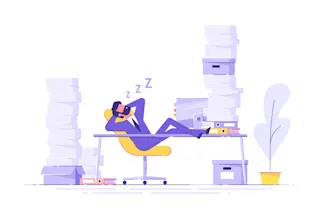If you’re supposed to be doing something else right now, you came to the right place. After all, if you’re going to procrastinate, what better way to do it than by reading an article about procrastination?
But it’s not just you – even pigeons procrastinate. Procrastination has been defined as “the needless delay of things one intends to do.” But most of us know it as watching cat videos when we’re on deadline.
However you describe it, procrastination is fundamentally irrational. We know putting something off now is going to cost us later, yet we do it anyway. So what makes procrastination so hard to resist? For such a common and vexing problem, there’s not much academic agreement about what causes it. It’s been seen as everything from a time-management problem to borderline mental illness. But it may be just the way our brains work.
One way of thinking about ...















